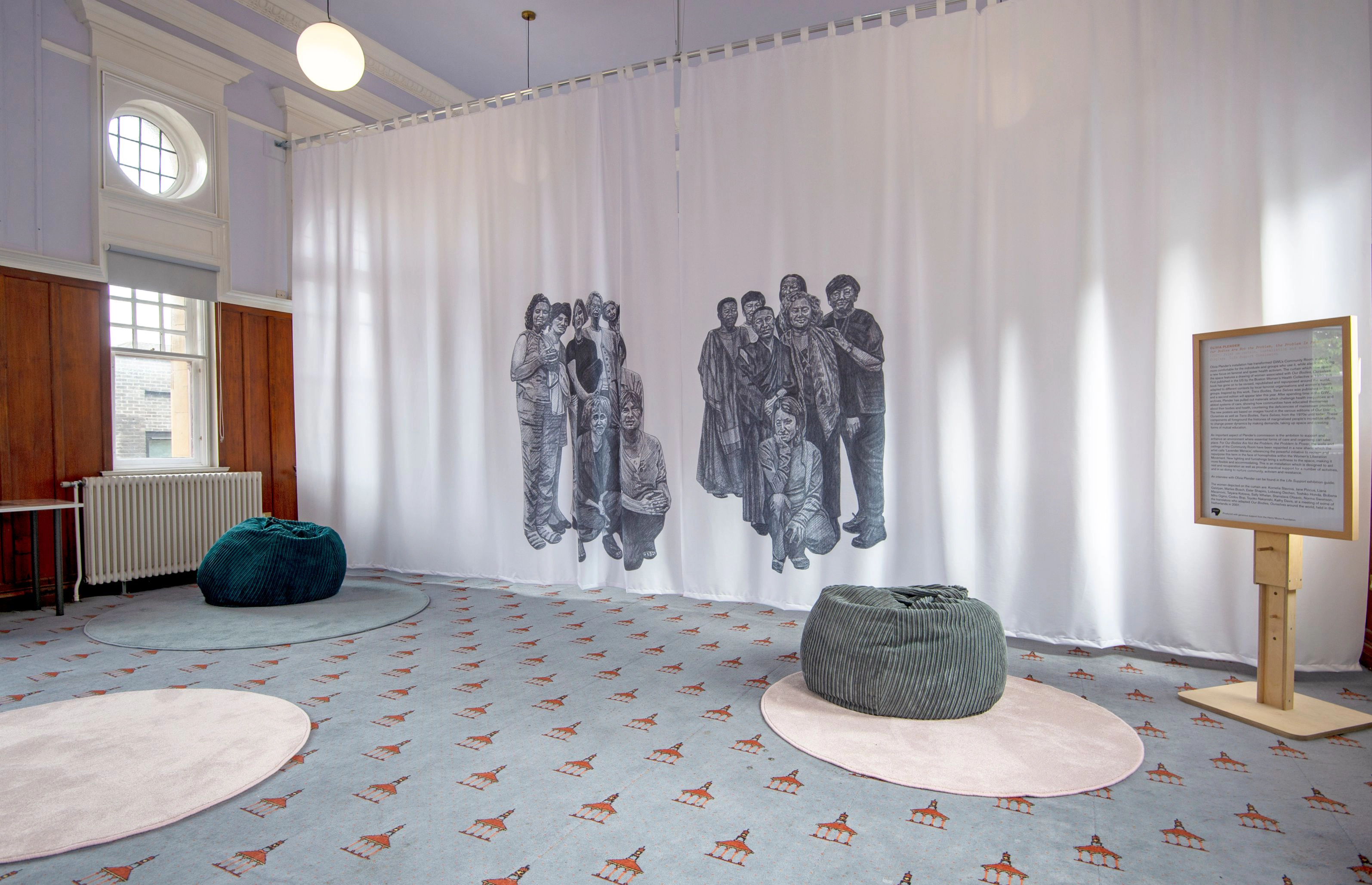
Our Bodies Are Not the Problem, the Problem is Power, 2021
installation view, ‘Life Support – Forms of Care in Art and Activism’, Glasgow Women’s Library
Our Bodies Are Not the Problem, the Problem is Power, 2021
installation, ‘Life Support – Forms of Care in Art and Activism’, Glasgow Women’s Library
Our Bodies Are Not the Problem, the Problem is Power is an installation in the Community Room of Glasgow Women’s Library (GWL), which departs from my research in their archives into feminist and queer health activism. For the exhibition ‘Life Support’ I was commissioned to redesign the space and enhance an environment where essential forms of care and organising can take place. By changing the colour scheme, the lighting and furniture, I aimed to make the room more comfortable, flexible and accommodating for the groups who use it. This is an installation designed to aid rest and recuperation as well as provide practical support for the activities that take place there, and in so doing to nurture community, activism and resistance.
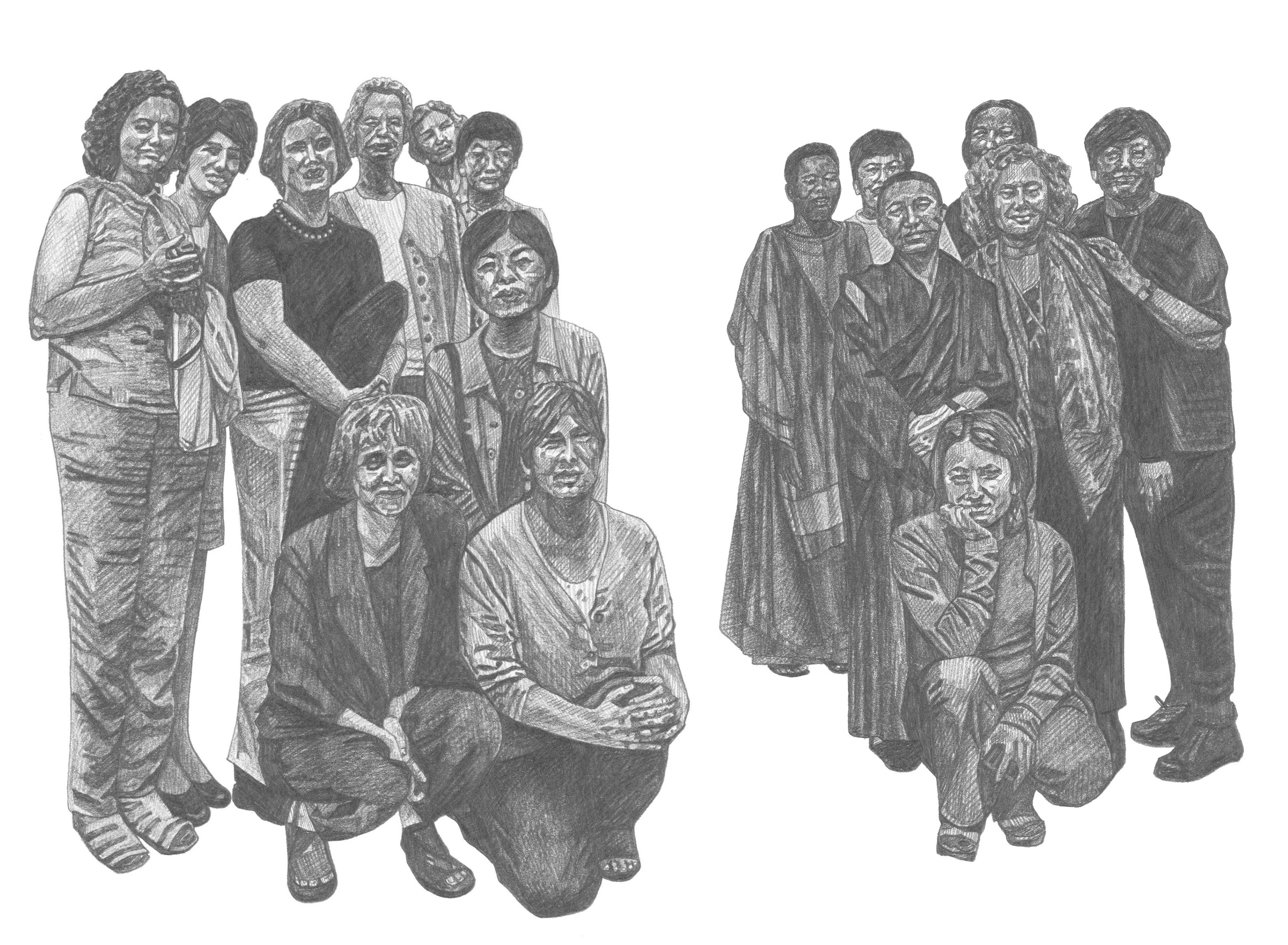
Our Bodies Are Not the Problem, the Problem is Power, 2021
pencil on paper
The printed curtain which spans the room features a life-sized drawing of women associated with Our Bodies, Ourselves. First published in the US by the Boston Women’s Health Book Collective in 1970, the book has gone on to be revised, republished, and repurposed around the world, adapted to different contexts by local feminist organisations and women’s health groups. Rather than focus on the US group that wrote the first version of Our Bodies, Ourselves, the curtain depicts some of the women who have translated the book – a process involving a complete rewriting each time, acknowledging the differing understandings of the relationship between health, the body and community across cultures.
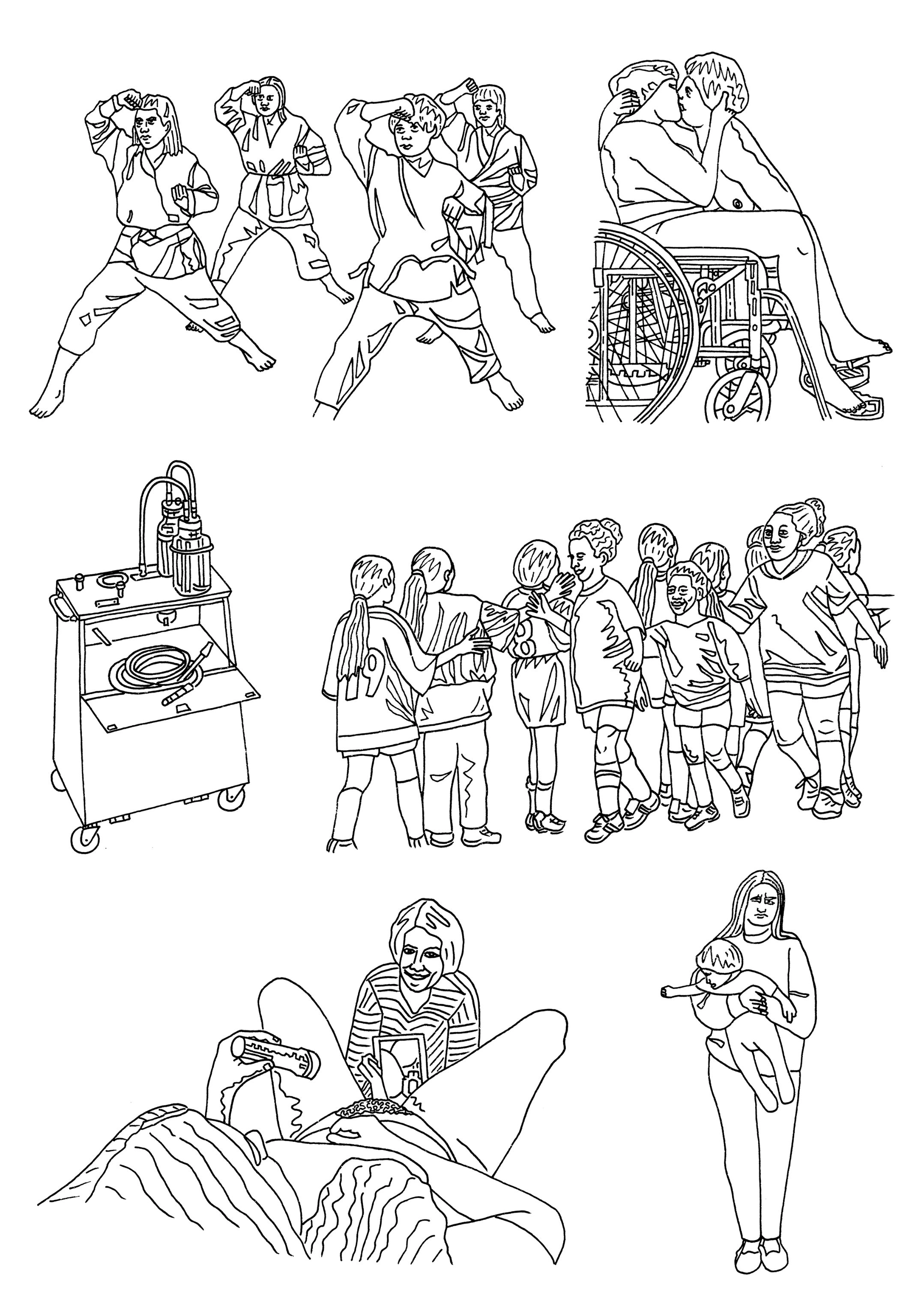
Our Bodies Are Not the Problem, the Problem is Power, 2021
printed poster, 59.4 x 84.1 cm
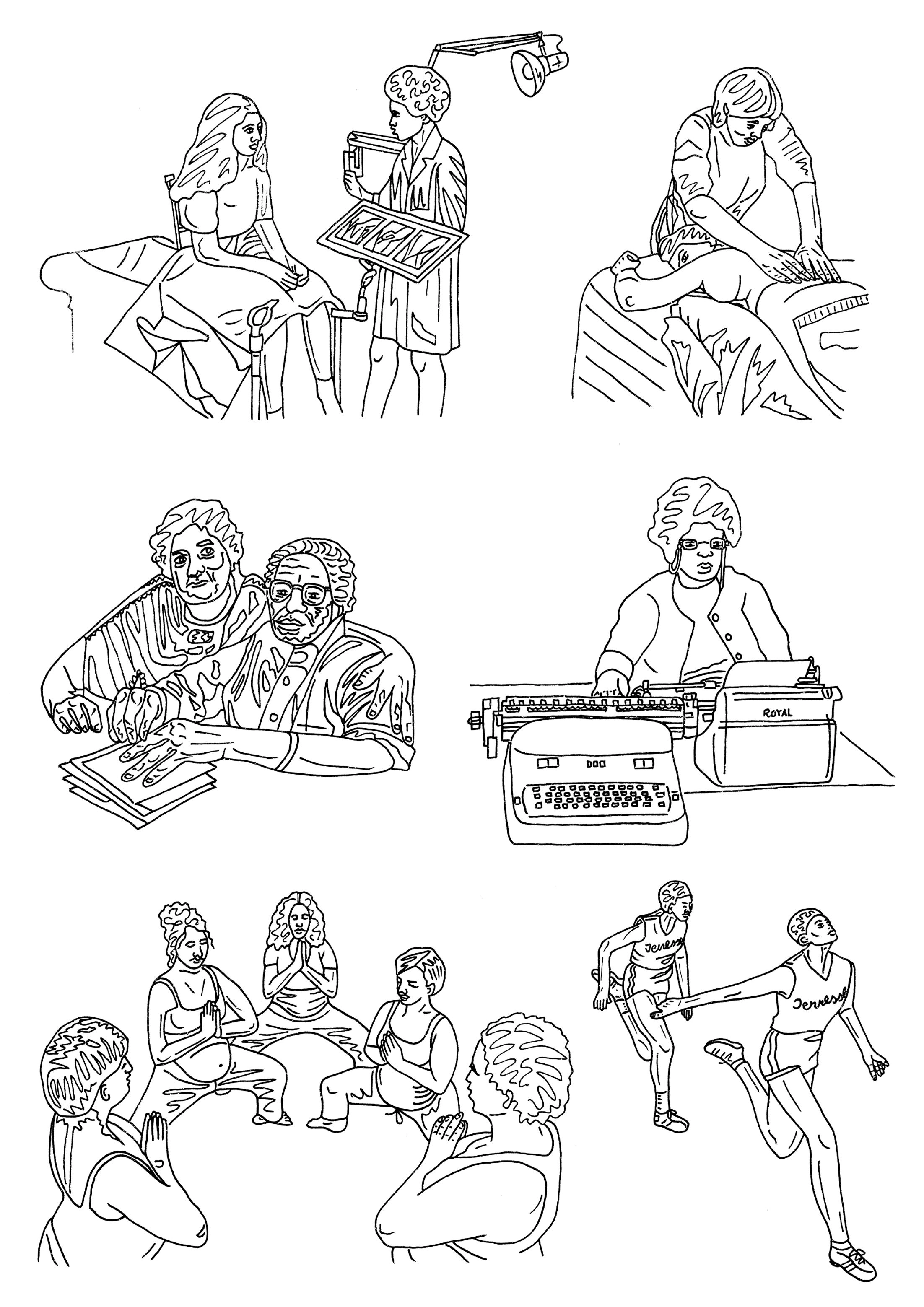
Our Bodies Are Not the Problem, the Problem is Power, 2021
printed poster, 59.4 x 84.1 cm
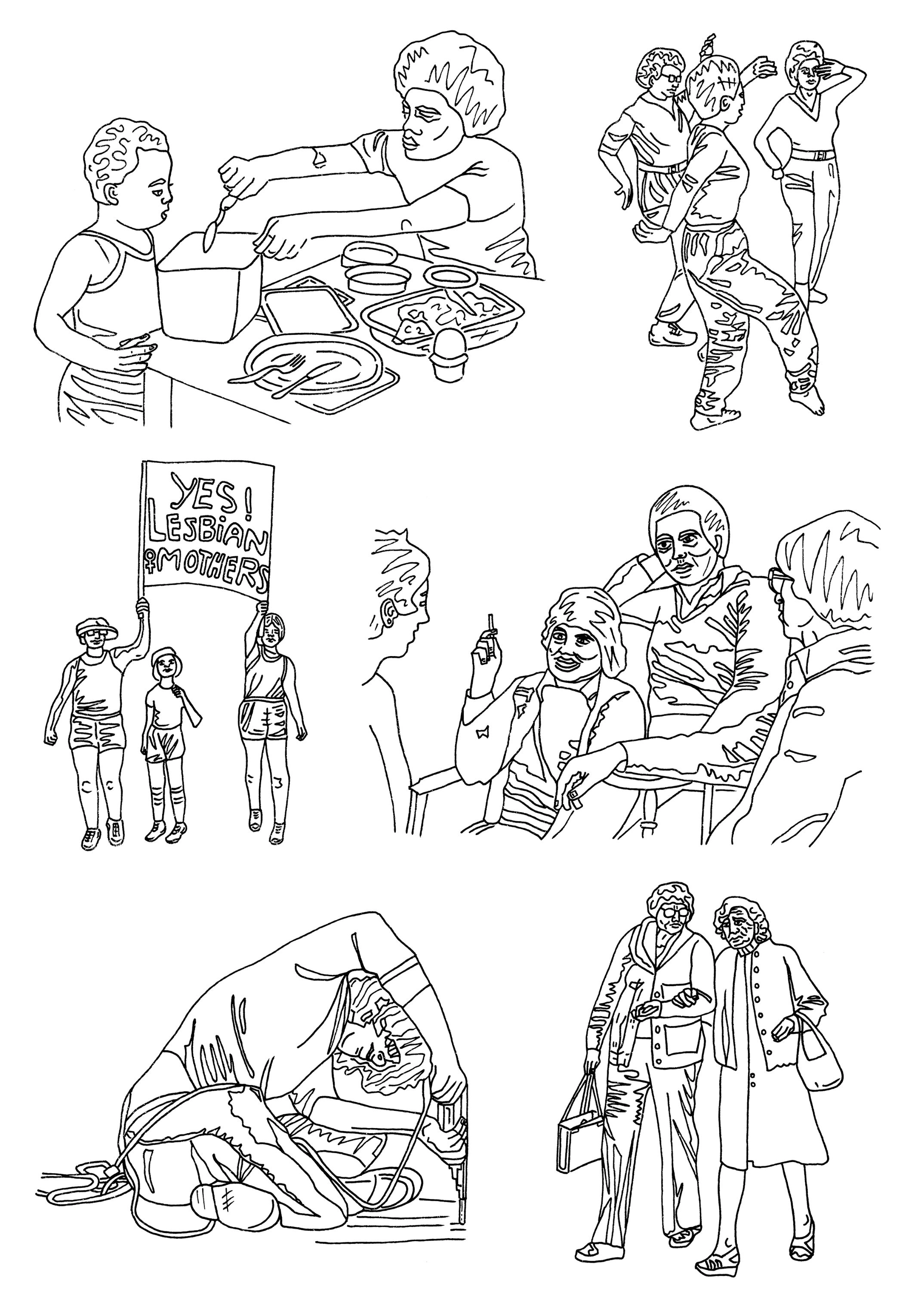
Our Bodies Are Not the Problem, the Problem is Power, 2021
printed poster, 59.4 x 84.1 cm
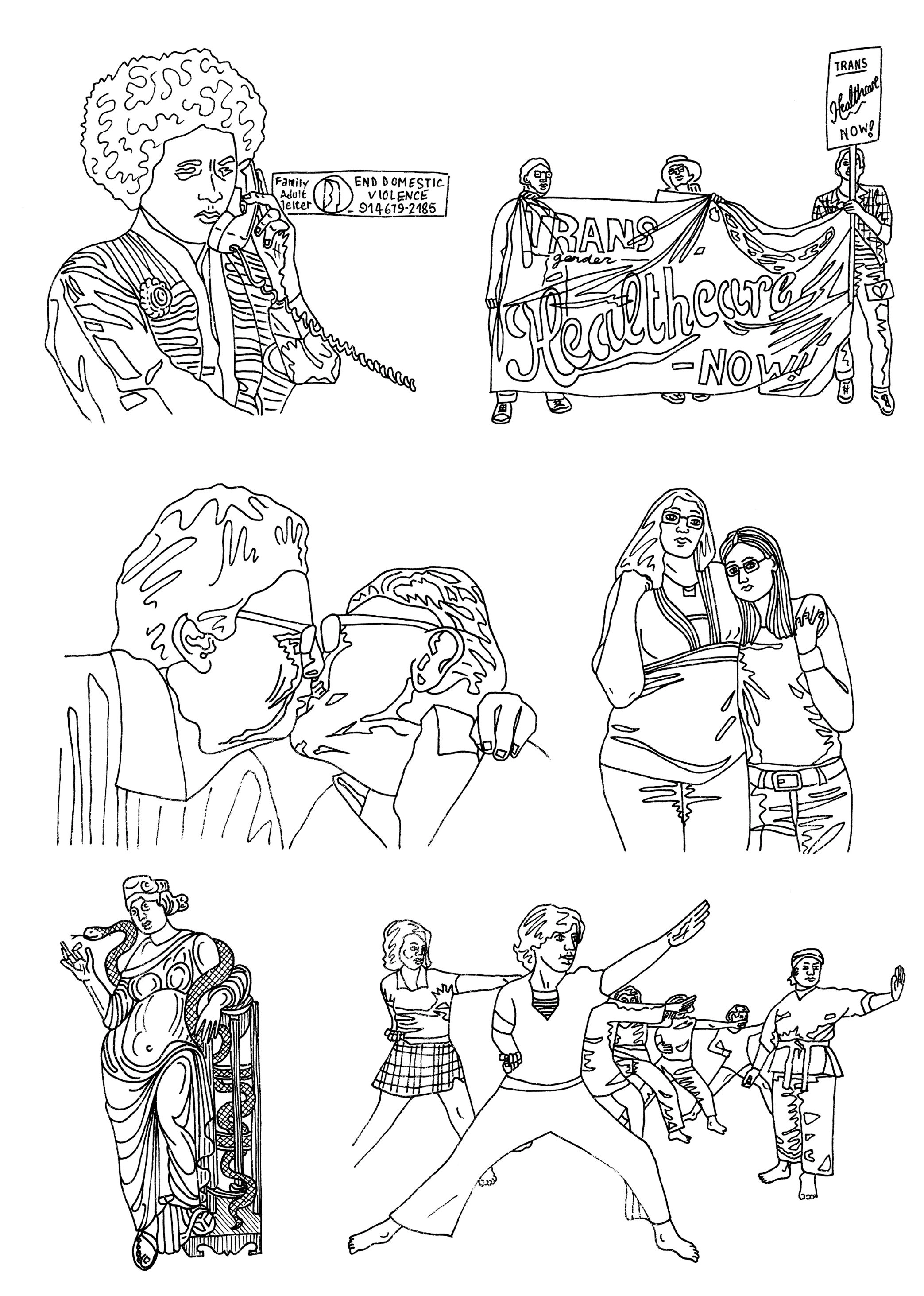
Our Bodies Are Not the Problem, the Problem is Power, 2021
printed poster, 59.4 x 84.1 cm
On the walls hangs a new set of posters based on images from the various English language editions of Our Bodies, Ourselves as well as Trans Bodies, Trans Selves, dating from the 1970s until today, which can be found in the collection of GWL. The installation also includes material from the archives, such as pamphlets and zines challenging health inequalities and ableist systems of care, while also showing how communities have developed alternatives to educate themselves about their bodies and health, countering the deficiencies of mainstream provision. Across all these components, I highlight the relationship between ill health and structures of inequality, including racism, sexism and transphobia.
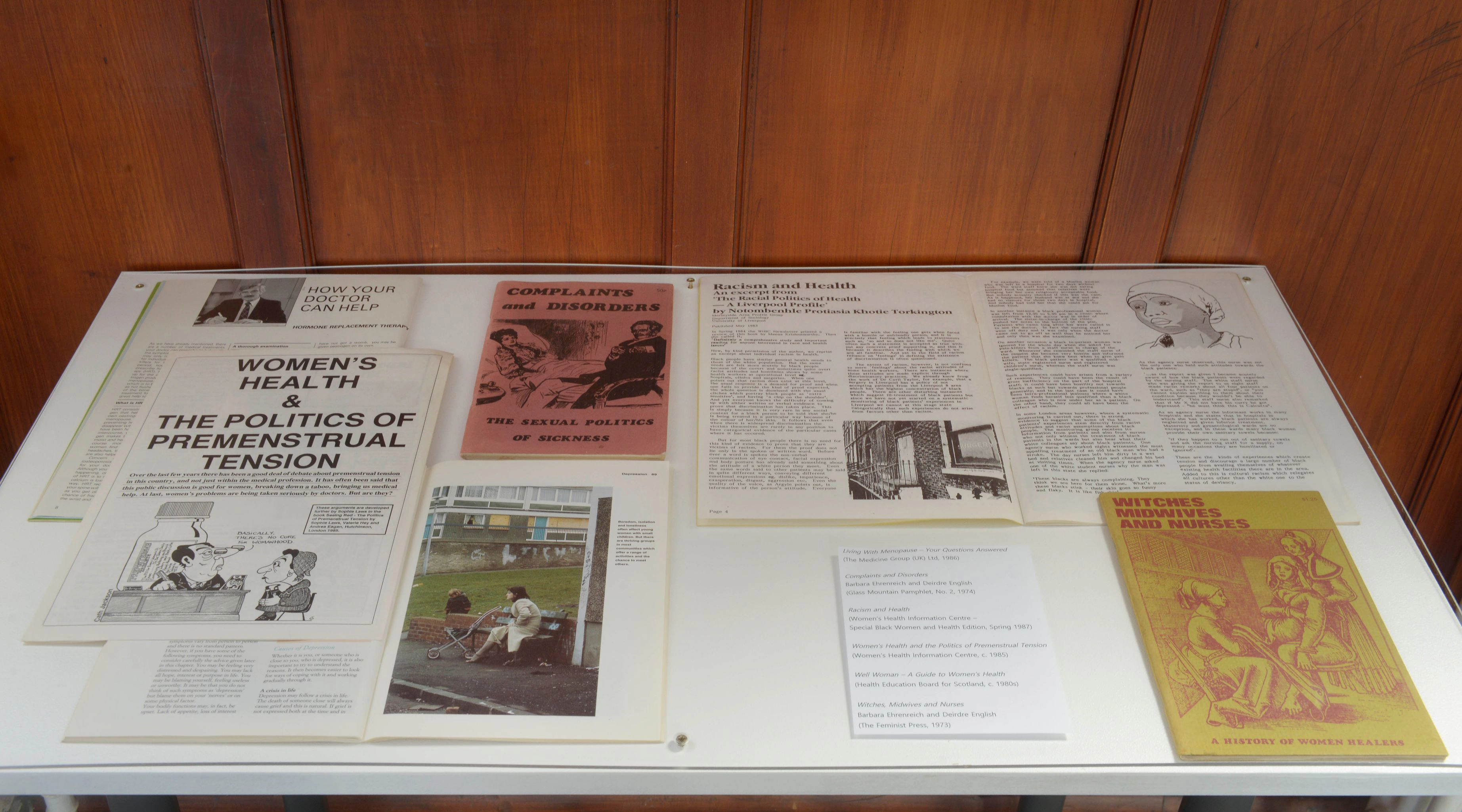
Our Bodies Are Not the Problem, the Problem is Power, 2021
installation view with archival material
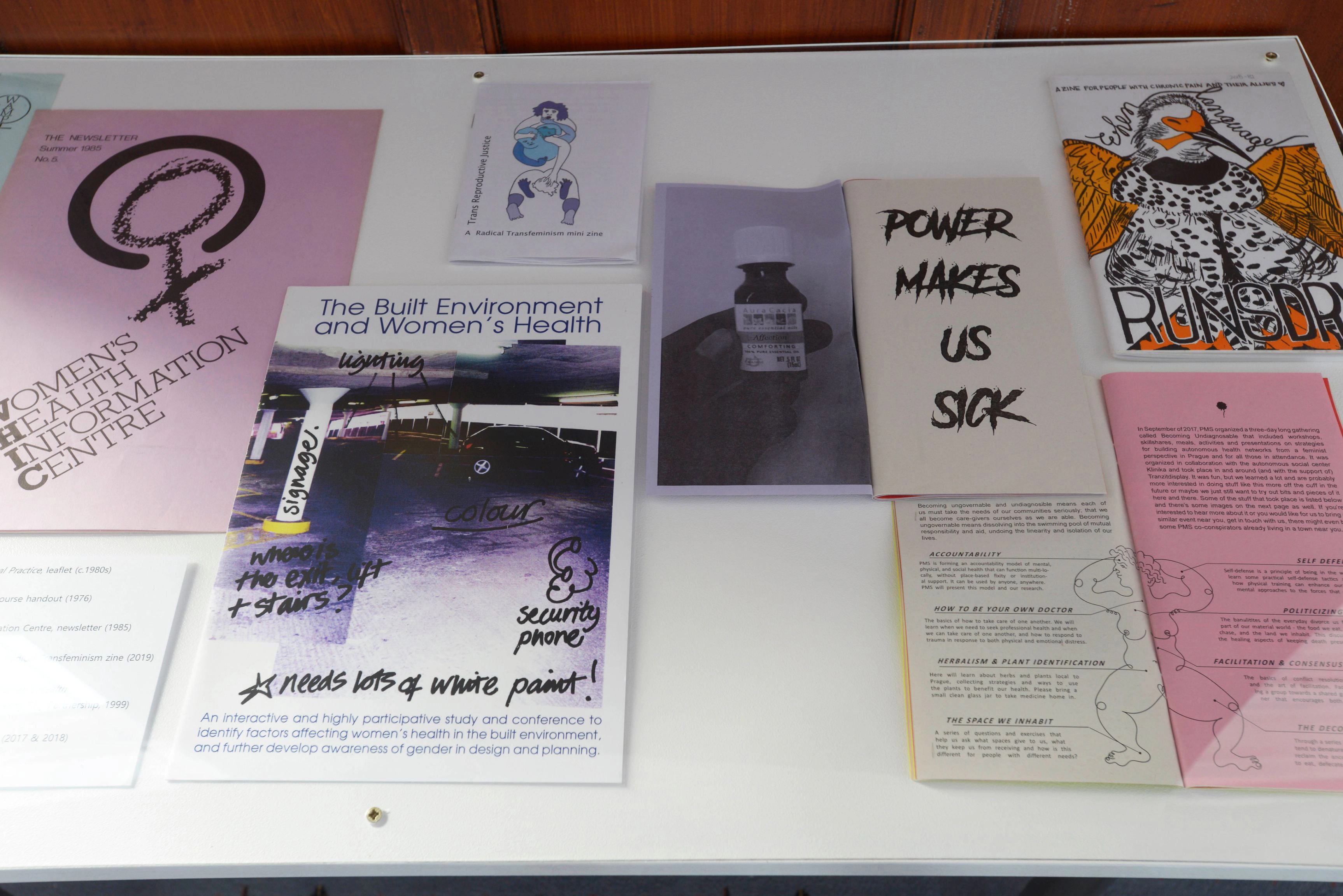
Our Bodies Are Not the Problem, the Problem is Power, 2021
installation view with archival material
For Our Bodies Are Not the Problem, the Problem is Power, the walls and ceilings of the GWL’s Community Room have been repainted in a new shade that I have ironically called ‘Lavender Menace’, referencing how this term was reclaimed and repurposed in the face of homophobia within the Women’s Liberation movement.
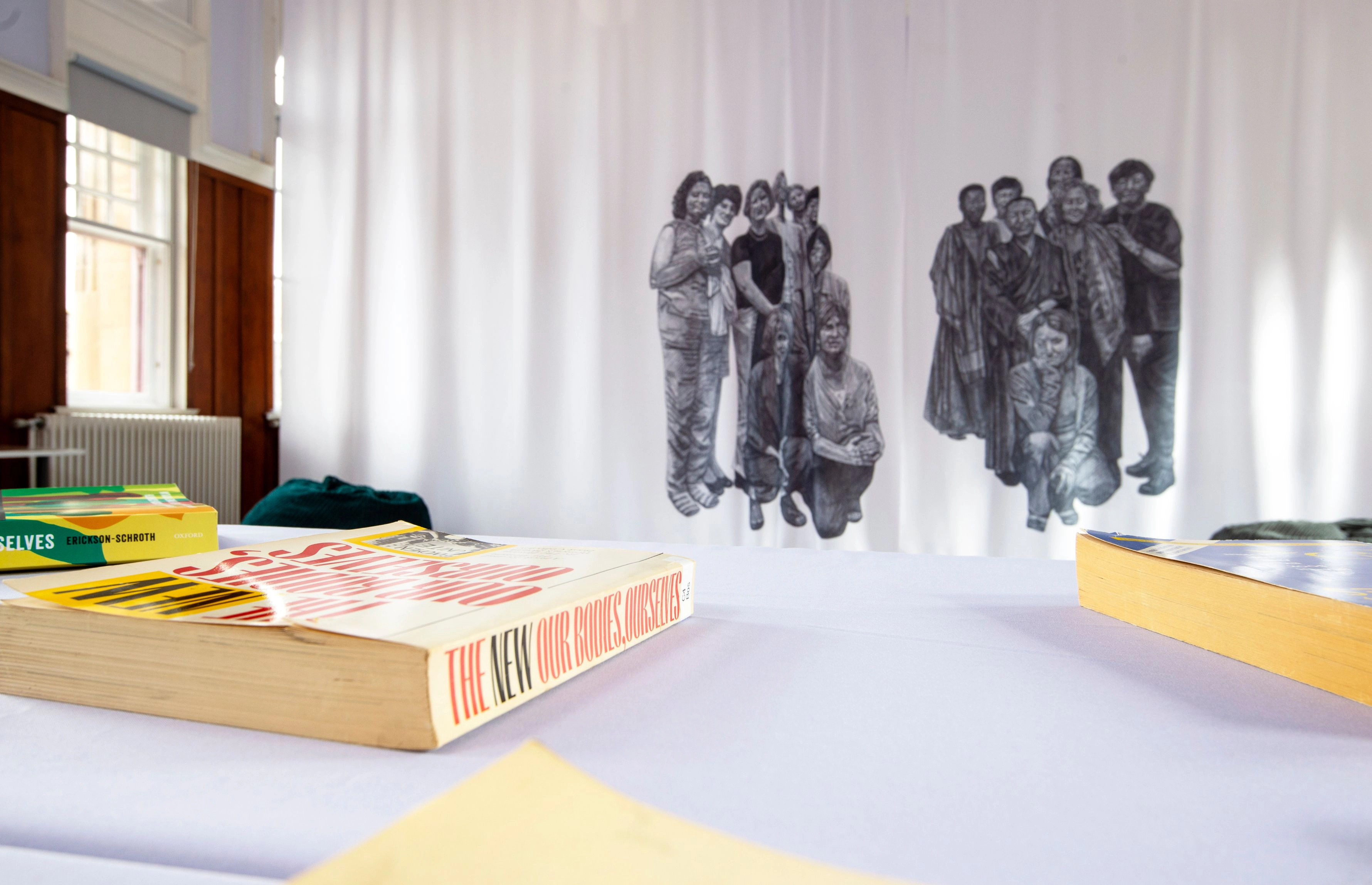
Our Bodies Are Not the Problem, the Problem is Power, 2021
installation view, ‘Life Support – Forms of Care in Art and Activism’, Glasgow Women’s Library
The women depicted on the curtain are Kornelia Slavova, Jane Pincus, Liana Galstyan, Marlies Bosch, Ester Shapiro, Lobsang Dechen, Toshiko Honda, Bobana Macanovic, Tatyana Kotzeva, Sally Whelan, Stanislava Otsavic, Norma Swenson, Miho Ogino, Codou Bop, Toyoko Nakanishi and Kathy Davis. The scene shows them gathered at a meeting of some of the translators of Our Bodies, Ourselves, held in the Netherlands in 2001.
Further Reading
‘Life Support – Forms of Care in Art and Activism’, Glasgow Women's Library, 2021
(view here)‘Life Support – Forms of Care in Art and Activism’ exhibition guide, including an interview with Olivia Plender, 2021
(download)Art Forum Critics’ Picks, ‘Life Support – Forms of Care in Art and Activism’, Tom Jeffreys
(read)Map Magazine, review of ‘Life Support: Forms of Care in Art and Activism’, James Bell, October
(read)Hospital Aesthetics: Disability, Medicine, Activism, Amanda Cachia, featuring Our Bodies are Not the Problem along with my curated exhibition ‘Chronos: health, access and intimacy’ (Manchester University Press, 2025)
(view here)